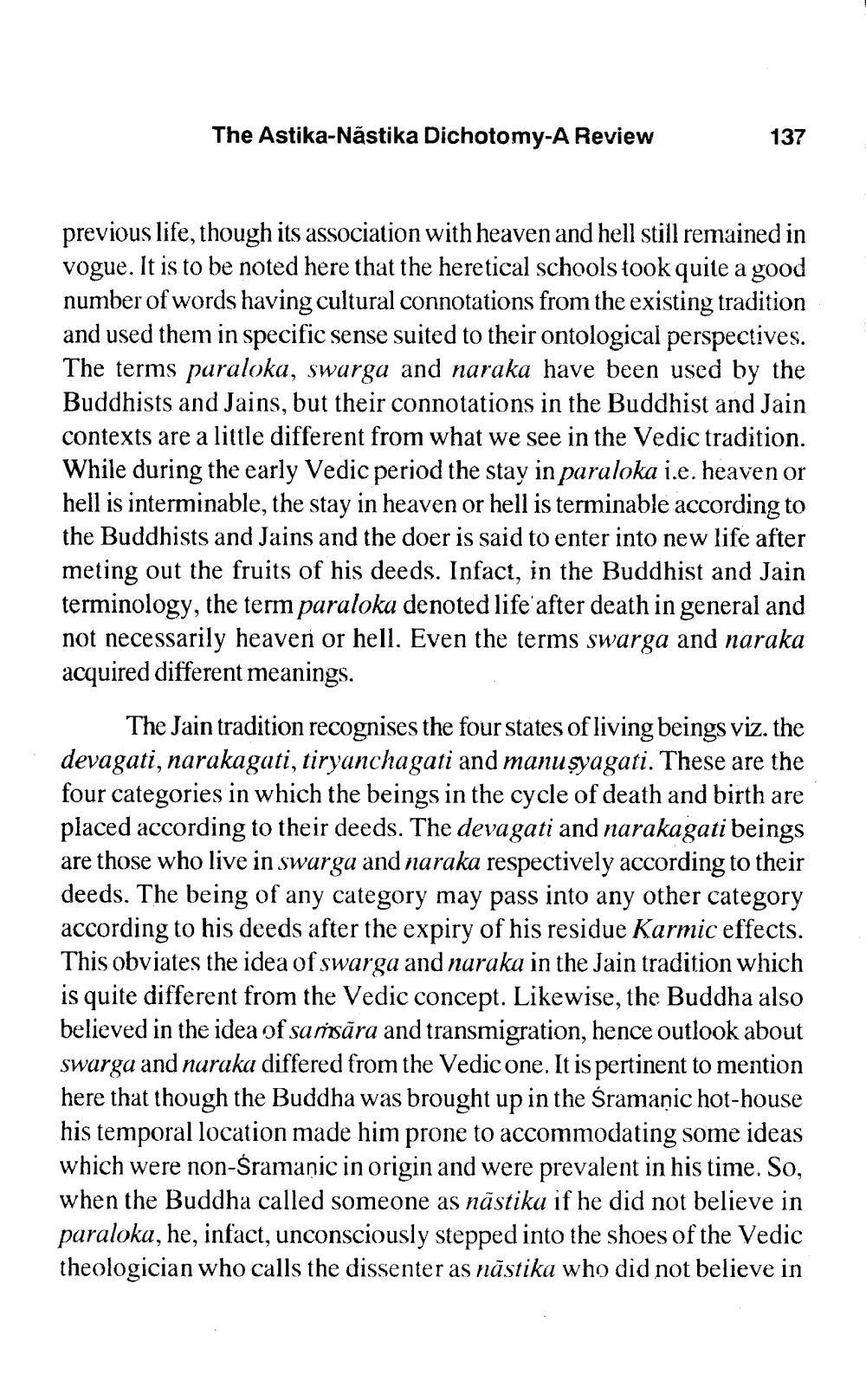________________
The Astika-Nastika Dichotomy-A Review
137
previous life, though its association with heaven and hell still remained in vogue. It is to be noted here that the heretical schools took quite a good number of words having cultural connotations from the existing tradition and used them in specific sense suited to their ontological perspectives. The terms paraloka, swarga and naraka have been used by the Buddhists and Jains, but their connotations in the Buddhist and Jain contexts are a little different from what we see in the Vedic tradition. While during the early Vedic period the stay in paraloka i.e. heaven or hell is interminable, the stay in heaven or hell is terminable according to the Buddhists and Jains and the doer is said to enter into new life after meting out the fruits of his deeds. Infact, in the Buddhist and Jain terminology, the term paraloka denoted life after death in general and not necessarily heaven or hell. Even the terms swarga and naraka acquired different meanings.
The Jain tradition recognises the four states of living beings viz. the devagati, narakagati, tiryanchagati and manuṣyagati. These are the four categories in which the beings in the cycle of death and birth are placed according to their deeds. The devagati and narakagati beings are those who live in swarga and naraka respectively according to their deeds. The being of any category may pass into any other category according to his deeds after the expiry of his residue Karmic effects. This obviates the idea of swarga and naraka in the Jain tradition which is quite different from the Vedic concept. Likewise, the Buddha also believed in the idea of samsara and transmigration, hence outlook about swarga and naraka differed from the Vedic one. It is pertinent to mention here that though the Buddha was brought up in the Śramanic hot-house his temporal location made him prone to accommodating some ideas which were non-Śramanic in origin and were prevalent in his time. So, when the Buddha called someone as nāstika if he did not believe in paraloka, he, infact, unconsciously stepped into the shoes of the Vedic theologician who calls the dissenter as nastika who did not believe in




